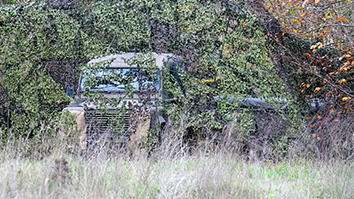Citation
Fiona C. Baker, Massimiliano de Zambotti, Laurel Chiappetta & Eric A. Nofzinger (2020) Effects of forehead cooling and supportive care on menopause-related sleep difficulties, hot flashes and menopausal symptoms: A pilot study., Behavioral Sleep Medicine.
Abstract
Objective/Background
This pilot study explored the efficacy of a novel forehead cooling device for perceived sleep difficulties and hot flashes in menopausal-age women.
Participants
20 women (55.1 ± 4.2 years; 19 post-menopausal) with insomnia symptoms and self-reported two or more hot flashes per day.
Methods
Participants completed daily assessments of sleep and hot flashes (via diaries) across 1 baseline week and 4 weeks of open-label, in-home, nightly treatment with a forehead cooling device (15–18°C) along with sleep hygiene instructions. They also completed ratings of insomnia and menopausal symptoms using standardized questionnaires.
Results
Women reported reductions in sleep onset latency (SOL), wakefulness after sleep onset (WASO), and nocturnal hot flash severity during the first week of treatment (SOL: 25.7 ± 18.4 min; WASO: 36.3 ± 27.3 min; hot flash severity: 3.0 ± 2.8) compared with baseline (SOL: 38 ± 26.3 min; WASO: 52.2 ± 35.6 min; hot flash severity: 6.8 ± 3.7), with further improvements after 2–4 weeks of use ( p < .001). There were also clinically meaningful reductions in insomnia severity and hot flash-related daily interference and lower psychological and physical symptom scores on the Greene climacteric scale after treatment (all p’s<0.001).
Conclusions
This exploratory, naturalistic, pilot study shows that nightly use of a forehead cooling device produces improvements in self-reported sleep and reductions in insomnia, hot flash, and other menopausal, symptoms. Controlled studies are warranted to determine the role of this therapy in the management of sleep difficulties and menopausal symptoms in women. Further mechanistic studies are needed to understand the physiological impact of forehead cooling on sleep and menopausal symptoms.


